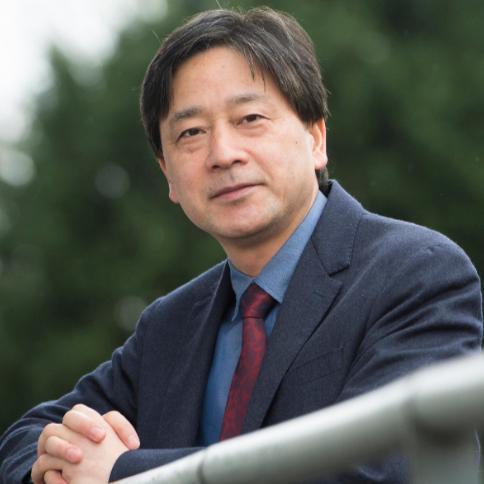Programme
- Overview
- Day 1 (June 25, 2024)
- Day 2 (June 26, 2024)
- Day 3 (June 27, 2024)
| June 25, 2024 | June 26, 2024 | June 27, 2024 |
|---|---|---|
| Opening Ceremony | Keynote Presentation | Keynote Presentations |
| Keynote Presentation | Doctoral Consortium | Spotlight Presentations |
| Technology Keynote Presentations | Workshops | Tech Exhibition |
| Panel Discussions | Oral Presentations | Poster Session |
| Workshops | Tech Exhibition | |
| Tech Exhibition | Poster Session | |
| Poster Session | Award Ceremony & Networking Dinner |
- 08:30 am - 9:00 am
- Melati Ballroom
Opening Ceremony
Welcome Speech
Professor Ivor Tsang, General Co-Chair, IEEE CAI 2024
Opening Address by Guest of Honour
Professor Tan Chorh Chuan
Permanent Secretary, National Research and Development
Permanent Secretary (Public Sector Science and Technology Policy and Plans Office), Prime Minister’s Office
Chairman, Agency for Science, Technology and Research
Chairman, Ministry of Health, Office for Healthcare Transformation (MOHT)
Chair, Healthier SG Implementation Office, MOH
Narration and Video Screening of Scientific Discovery Made Easier with Generative AI
Professor Ong Yew Soon, General Co-Chair, IEEE CAI 2024
- 9:00 am - 10:00 am
- Klaus-Robert MÜLLER
- Melati Ballroom
ML for the Sciences: Towards Understanding
In recent years, machine learning (ML) and artificial intelligence (AI) methods have begun to play a more and more enabling role in the sciences and in industry.
- 10:00 am - 10:30 am
- Orchid Ballroom
Tea Break
- 10:30 am - 11:00 am
- Joseph YANG
- Melati Ballroom
AI Native Architectures and considerations for Generative AI
Current cloud native datacenter architectures are insufficient to meet the demands of Artificial Intelligence, particularly Generative AI and its large models, impacting both training and inference infrastructure, with sustainability implications, yet HPE is leveraging insights from building Exascale Supercomputers to address these challenges in AI infrastructure.
- 11:00 am - 11:30 am
- Alexey NAVOLOKIN
- Melati Ballroom
The Future of High-performance Computing in the AI Era
AI is the most transformational technology of the last 50 years and the future of computing.
- 11:30 am - 12:00 pm
- Xun JIANG
- Melati Ballroom
The Challenges of LLM Agents: An Industry Perspective
Large Language Model (LLM) agents have emerged as a transformative technology, offering unprecedented capabilities in natural language processing and generation.
- 12:00 pm - 12:30 pm
- Mei May SOO
- Melati Ballroom
From AI Possible to AI Proven
Explore the journey of artificial intelligence from a theoretical concept to a demonstrably real capability.
- 10:30 am - 12:30 pm
- Lotus Junior 4D
Advancements in Neural Architecture Search: Techniques and Applications
Neural Architecture Search (NAS) has emerged as a revolutionary approach to automating the intricate design of Artificial Neural Networks (ANNs).
- 10:30 am - 12:30 pm
- Lotus Junior 4D
Evolutionary Transfer Learning and Optimisation: Strategies and Innovations
In our rapidly changing world, the ability to learn and adapt is paramount. This capability enables us to navigate complex challenges, leveraging our past experiences to avoid previous pitfalls and apply knowledge in novel contexts.
- 1:30 pm - 2:30 pm
- Lotus Junior 4D
Frontiers of Evolutionary Computation: Innovations and Applications
Evolutionary computation is a family of algorithms modeled on natural evolution. It applies mechanisms like mutation, crossover, and selection to a population of candidate solutions, allowing them to evolve over generations.
- 10:30 am - 2:30 pm
- Lotus Junior 4E
Foundation Models for Healthcare
Foundation models have garnered significant attention from both research and industry communities. It holds profound potential for healthcare applications.
- 10:30 am - 2:30 pm
- Melati Junior 4011
AI for Education: Exploring LLMs and Adaptive Learning for Personalised Education
Recent advanced AI technologies, especially the large language models (LLMs) like GPTs, have significantly advanced the field of natural language processing (NLP) and led to the development of various LLM-based applications.
- 10:30 am - 2:30 pm
- Melati Junior 4111
Blockchain and Artificial Intelligence
Blockchain and Artificial Intelligence (AI) have individually transformed industries, and their convergence is poised to be the next frontier of innovation.
- 12:30 pm - 2:00 pm
- Orchid Ballroom
Lunch
- 2:30 pm - 4:00 pm
- Simon SEE
- Melati Ballroom
AI for Good: Transforming Science for Global Impact
Moderated by Simon See, NVIDIA AI Technology Centre and AI Nation
Panellists: Johan BARTHELEMY, Donghao HUANG, Masashi SUGIYAMA, Jing Cong TEH
- 4:00 pm - 4:30 pm
- Orchid Ballroom
Tea Break
- 4:30 pm - 6:00 pm
- Yao Chu JIN
- Melati Ballroom
Charting the Future: Large Multimodal Models and Generative AI in Industry
Moderated by Yao Chu JIN, Westlake University
Panellists: Stefan MENZEL, Klaus-Robert MÜLLER, Cong XU, Qiang YANG
- 2:30 pm - 6:00 pm
- Lotus Junior 4D
Gen AI on Any Device: Accelerate LLMs with Triton, DirectML, and Declarative RAG
This workshop is a comprehensive deep-dive into accelerating and deploying large language models (LLMs).
- 2:30 pm - 6:00 pm
- Lotus Junior 4E
Tensor Models for Machine Learning: Empowering Efficiency, Interpretability, and Reliability
Tensor Networks (TNs), with deep roots in quantum physics, chemistry, and applied mathematics, have demonstrated exceptional performance in handling high-dimensional data, generating multiway structured data, optimising neural network structures and etc.
- 2:30 pm - 6:00 pm
- Melati Junior 4011
Scientific Machine Learning and its Industrial Applications
In recent years, applications of machine learning for science and technology have been growing under the name Scientific Machine Learning (SciML).
- 2:30 pm - 6:00 pm
- Melati Junior 4111
Workshop by NSCC
- 6:00 pm - 7:30 pm
- Orchid Ballroom
Welcome Reception
- 9:00 am - 10:00 am
- Qiang YANG
- Melati Ballroom
Federated Large Language Models
Federated Learning is at the intersection of AI and privacy computing. How to make federated learning more trustworthy, effective and efficient is the focus of future industry and academia.
- 10:00 am - 10:30 am
- Orchid Ballroom
Tea Break
- 10:30 am - 12:30 pm
- Melati Ballroom
Foundation Models and Generative AI
Delve into the power of foundation models and generative AI, leveraging knowledge representation, crossing modality gaps, and reshaping data generation. It harnesses generative AI to innovate and ensure robustness, fairness, transparency, while understanding the challenges in deploying the foundation models.
Opening by chair
10:30 AM - 10:40 AM
An Evaluation of Reasoning Capabilities of Large Language Models in Financial Sentiment Analysis
10:40 AM - 11:00 AM
Authors: Kelvin Du (Nanyang Technological University), Frank Xing (National University of Singapore), Rui Mao (Nanyang Technological University), Erik Cambria (Nanyang Technological University)
Aligning Crowd-sourced Human Feedback for Code Generation with Bayesian Inference
11:00 AM - 11:20 AM
Authors: Man Fai Wong (City University of Hong Kong), Chee Wei Tan (Nanyang Technological University)
Where to Move Next: Zero-shot Generalization of LLMs for Next POI Recommendation
11:20 AM - 11:40 AM
Authors: Shanshan Feng (Centre for Frontier AI Research, A*STAR / Institute of High Performance Computing, A*STAR), Haoming Lyu (Nanyang Technological University), Fan Li (Hongkong Polyu), Zhu Sun (Centre for Frontier AI Research, A*STAR / Institute of High Performance Computing, A*STAR), Caishun Chen (Centre for Frontier AI Research, A*STAR / Institute of High Performance Computing, A*STAR)
JEN-1: Text-Guided Universal Music Generation with Omnidirectional Diffusion Models
11:40 AM - 12:00 PM
Authors: Peike Li (UTS), Boyu Chen (Futureverse AI Reseearch), Yao Yao (Futureverse AI Reseearch), Yikai Wang (Futureverse AI Reseearch), Allen Wang (Futureverse AI Reseearch), Alex Wang (Futureverse AI Reseearch)
Reconceptualizing AI Literacy: The Importance of Metacognitive Thinking in an Artificial Intelligence (AI)-Enabled Workforce
12:00 PM - 12:20 PM
Authors: Sidra Sidra (Data61, CSIRO), Claire Mason (Data61, CSIRO)
- 10:30 am - 11:20 pm
- Lotus Junior 4D
AI in Metaverse
Venture into a sophisticated combination of virtual reality (VR), augmented reality (AR), and advanced artificial intelligence (AI) in this vast, interconnected 3D virtual space. It examines how AI-driven non-human avatars further enhance Digital Twin technologies and enrich the Metaverse experience, blurring boundaries between reality and the virtual space.
Opening by chair
10:30 AM - 10:40 AM
HFNeRF: Learning Human Biomechanic Features with Neural Radiance Fields
10:40 AM - 11:00 AM
Authors: Arnab Dey (I3S/CNRS University Cote d'Azur), Di Yang (INRIA Center at Universit´e Cˆote d’Azur), Antitza Dantcheva (INRIA Center at Universit´e Cˆote d’Azur), Jean Martinet (I3S/CNRS University Cote d'Azur)
Interact360: Interactive Identity-Driven Text to 360° Panorama Generation
11:00 AM - 11:20 AM
Authors: Zeyu Cai (HKUST(GZ), Zhelong Huang (University of Science and Technology of China), Xu Zheng (HKUST), Yexin Liu (HKUST(GZ), Chao Liu (HKUST(GZ), Zeyu Wang (The Hong Kong University of Science and Technology (Guangzhou), Lin Wang (HKUST)
- 11:20 am - 12:30 pm
- Lotus Junior 4D
Societal Implications of AI
Explore the impact of artificial intelligence on society, including issues related to ethics, privacy, and equity. It examines how AI influences job markets, decision-making processes, and personal privacy, while also considering the importance of fairness, transparency, and accountability in AI systems.
Opening by chair
11:20 AM - 11:30 AM
Resolving Ethics Trade-offs in Implementing Responsible AI
11:30 AM - 11:50 AM
Authors: Conrad Sanderson (Data61 / CSIRO), Emma Schleiger (Data61 / CSIRO), David Douglas (Environment / CSIRO), Petra Kuhnert (Data61 / CSIRO), Qinghua Lu (Data61 / CSIRO)
Integrating Time Series Forecasting, NLP, and Financial Analysis for Optimal Investment Strategy: A Case Study on Adani Ports
11:50 AM - 12:10 PM
Authors: Rahul Rao (PES University), Jyothi R (PES University)
- 10:30 am - 12:30 pm
- Lotus Junior 4E
AI and Sustainability
Employ AI to optimise sustainable energy resources, reduce wastage, and support renewable energy initiatives. It leverages AI’s problem-solving capabilities to address environmental challenges and contribute to a sustainable future.
Opening by chair
10:30 AM - 10:40 AM
ReCycle: Fast and Efficient Long Time Series Forecasting with Residual Cyclic Transformers
10:40 AM - 11:00 AM
Authors: Arvid Weyrauch (Karlsruhe Institute of Technology (KIT)), Thomas Steens (German Aerospace Center (DLR), Oskar Taubert (Karlsruhe Institute of Technology (KIT), Benedikt Hanke (German Aerospace Center (DLR), Aslan Eqbal (INENSUS GmbH), Ewa Götz (Siemens AG, Digital Industries), Achim Streit (Karlsruhe Institute for Technology (KIT)), Markus Götz (Karlsruhe Institute of Technology (KIT), Charlotte Debus (Karlsruhe Institute of Technology (KIT))
Adaptive Home Energy Management: Human-Centric RL Approach for Diverse Situations
11:00 AM - 11:20 AM
Authors: Zach Tchir (University of Alberta), Petr Musilek (University of Alberta), Marek Z Reformat (University of Alberta)
Carbon Stock Estimation at Scale from Aerial and Satellite Imagery
11:20 AM - 11:40 AM
Authors: Alex To (University of Sydney), Hoang Quoc Viet Pham (University College Cork), Quang H. Nguyen (Reliable Machine Learning Group), Joseph G. Davis (University of Sydney), Barry O'Sullivan (University College Cork), Shan L Pan (University of New South Wales), Hoang D. Nguyen (University College Cork)
Harnessing Deep Learning and Satellite Imagery for Post-Buyout Land Cover Mapping
11:40 AM - 12:00 PM
Authors: Hakan T. Otal (University at Albany), Elyse Zavar (University of North Texas), Sherri B. Binder (BrokoppBinder Research & Consulting), Alex Greer (University at Albany), M Abdullah Canbaz (University at Albany)
Soft Constraint in Local Structure Approximation-PINN
12:00 PM - 12:20 PM
Authors: Jian Cheng Wong (IHPC, A*STAR, NTU), Pao-Hsiung Chiu (IHPC, A*STAR), Chin Chun Ooi (IHPC, CFAR), My Ha Dao (IHPC, A*STAR)
- 10:30 am - 12:30 pm
- Melati Junior 4011
AI in Healthcare and Life Science
Explore the need for improved decision making to assist medical practitioners as well as additional medical issues including personnel allocation and scheduling, automated sensing, improved medical devices and manufacturing processes, and supply chain optimisation.
Opening by chair
10:30 AM - 10:40 AM
Lightweight Relational Embedding in Task-Interpolated Few-Shot Networks for Enhanced Gastrointestinal Disease Classification
10:40 AM - 11:00 AM
Authors: Xinliu Zhong (National University of Singapore), Angela S. Koh (National Heart Centre Singapore, Duke-NUS Medical School), Hwa Liang Leo (National University of Singapore), Yeo Si Yong (NTU)
Symbolic Regression for Discovery of Medical Equations: A Case Study on Glomerular Filtration Rate Estimation Equations
11:00 AM - 11:20 AM
Authors: Kei Sen Fong (National University of Singapore), Mehul Motani (National University of Singapore)
Prediction of Treatment Outcome to Transcranial Direct Current Stimulation in Major Depression Based on Deep Learning of EEG Data
11:20 AM - 11:40 AM
Authors: Jijomon Chettuthara Moncy (School of Psychology, University of East London), Yong Fan (Department of Radiology, Perelman School of Medicine, University of Pennsylvania), Cynthia H.Y. Fu (School of Psychology, University of East London, Centre for Affective Disorders, IoPPN, King’s College London)
MyriadAL: Active Few Shot Learning for Histopathology
11:40 AM - 12:00 PM
Authors: Nicolas Schiavone (University of Alberta), Jingyi Wang (University of Alberta), Shuangzhi Li (University of Alberta), ROGER ZEMP (University of Alberta), Xingyu Li (University of Alberta)
- 10:30 am - 12:30 pm
- Melati Junior 4111
AI in Multi-agents and Robotic Systems
Multi-Agent Systems (MAS) in Artificial Intelligence study how multiple intelligent agents or robots work together to achieve tasks under common goals or distinct interest scenarios. It involves mixing agents with humans to address raising trust and safety concerns.
Opening by chair
10:30 AM - 10:40 AM
Phased Continuous Exploration Method for Cooperative Multi-Agent Reinforcement Learning
10:40 AM - 11:00 AM
Authors: Jie Kang (Dalian University of Technology, Dalian, China), Yaqing Hou (Dalian University of Technology, Dalian, China), Yifeng Zeng (Northumbria University, Newcastle, UK), Xiangrong Tong (Yantai University, Yantai, China), Xin Xu (Wuhan University of Science and Technology, Wuhan, China), Qiang Zhang (Dalian University of Technology, Dalian, China)
Group Correction-based Local Disturbance Particle Swarm Optimization algorithm for solving Continuous Distributed Constraint Optimization Problems
11:00 AM - 11:20 AM
Authors: Meifeng Shi (Chongqing University of Technology, Kyushu University), Haitao Xin (Chongqing University of Technology), Makoto Yokoo (Kyushu University)
Imitating Human Joystick Control Ability Using Style and Content Disentanglement
11:20 AM - 11:40 AM
Authors: Mingyuan Lei (Nanyang Technological University), Neha Priyadarshini Garg (Nanyang Technological University), Meenakshi Gupta (Nanyang Technological University), Tat-Jen Cham (Nanyang Technological University)
LLMs as a System of Multiple Expert Agents: An Approach to Solve the Abstraction and Reasoning Corpus (ARC) Challenge
11:40 AM - 12:00 PM
Authors: John Chong Min Tan (National University of Singapore), Mehul Motani (National University of Singapore)
Local Optima Networks for Reinforcement Learning - A Case Study: Coupled Inverted Pendulum Task
12:00 PM - 12:20 PM
Authors: Yuyang Zhou (University of Nottingham Ningbo China), Alexander Turner (University of Nottingham), Ferrante Neri (University of Surrey)
- 12:30 pm - 2:30 pm
- Lotus Junior 4E
Doctoral Consortium
The Doctoral Consortium offers a unique opportunity for doctoral students nearing completion or those who have recently graduated to interact with experienced researchers specialising in Artificial Intelligence.
- 12:30 pm - 2:30 pm
- Melati Junior 4011
Women in AI Lunch Networking
- Opening by Dipti Srinivasan, Women in Computer Intelligence
- Talk by Joelle Pitts, Carnegie Mellon University. "Women in AI: A CMU Showcase of Research, Professional Development, and Support"
- Dialogue session hosted by Nelishia Pillay, Women in Computer Intelligence
- Networking over lunch
- 12:30 pm - 2:30 pm
- Orchid Ballroom
Lunch
- 2:30 pm - 6:00 pm
- Lotus Junior 4D
AI and Education & General Track
Involve the creation of adaptive learning systems, personalised content delivery, and administrative automation. It also utilises predictive analytics to monitor student progress and identify learning gaps.
Opening by chair
2:30 PM - 2:40 PM
ChatGPT vs Bard: Which is a better writer?
2:40 PM - 3:00 PM
Authors: Ai Leng Ng (Singapore University of Social Sciences), Justina Ong (Singapore University of Social Sciences)
Scaffolding Language Learning via Multi-modal Tutoring Systems with Pedagogical Instructions
3:00 PM - 3:20 PM
Authors: Zhengyuan Liu (A*STAR), Stella Yin (Nanyang Technological University), Carolyn Lee (Stanford), Nancy Chen (Institute for Infocomm Research)
Automatic Multiple Choice Question Evaluation Using Tesseract OCR and YOLOv8
3:20 PM - 3:40 PM
Authors: Saikat Mahmud (American International University-Bangladesh), Kawshik Biswas (American International University-Bangladesh), Api Alam (American International University-Bangladesh), Rifat Al Mamun Rudro (American International University-Bangladesh), Nusrat Jahan Anannya (American International University-Bangladesh), Israt Jahan Mouri (American International University-Bangladesh), Kamruddin Nur (American International University-Bangladesh)
Human-Generative AI Collaborative Problem Solving Who Leads and How Students Perceive the Interactions
3:40 PM - 4:00 PM
Authors: Gaoxia Zhu (Nanyang Technological University), Vidya Sudarshan (Nanyang Technological University), Jason Kow (Nanyang Technological University), Yew Soon Ong (Nanyang Technological University, Nanyang View, Singapore)
Prediction of Students' Academic Progression using Machine Learning
4:30 PM - 4:50 PM
Authors: Lien Nguyen (Centre for Teaching, Research and Scholarship, Sydney Institute of Higher Education), Anh Nguyen (School of Electrical Engineering, [Hanoi University of Science and Technology)](no this author, delete), Jack Jia (Centre for Teaching Research and Scholarship, Sydney Institute of Higher Education), Steve Ling (School of Electrical and Data Engineering, University of Technology Sydney), Nigel Finch (Centre for Teaching Research and Scholarship, Sydney Institute of Higher Education)
ColdU: User Cold-start Recommendation with User-specific Modulation
4:50 PM - 5:10 PM
Authors: Daxiang Dong (Baidu Inc.), Shiguang Wu (Tsinghua University), Yaqing Wang (Baidu Research), Jingbo Zhou (Baidu Inc.), Haifeng Wang (Baidu)
Gradient Recalibration for Improved Visibility of Tail Classes in Supervised Contrastive Learning
5:10 PM - 5:30 PM
Authors: Genze Zhan (Beijing Institute of Technology), Xin Li (Beijing Institute of Technology), Yong Heng (Beijing Institute of Electronic System Engineering), Yan Zhang (Beijing Institute of Technology), Jiaojiao Wang (Institute of Automation, Chinese Academy of Sciences), Peiyao Zhao (Beijing Institute of Technology), Meitao Mu (Beijing Institute of Technology), XueYing Zhu (Beijing Institute of Technology), Mingzhong Wang (The University of the Sunshine Coast)
When Audio Denoising Meets Spiking Neural Network
5:30 PM - 5:50 PM
Authors: Xiang HAO (The Hong Kong Polytechnic University), Chenxiang Ma (The Hong Kong Polytechnic University), Qu Yang (National University of Singapore), Kay Chen Tan (The Hong Kong Polytechnic University), Jibin Wu (The Hong Kong Polytechnic University )
- 2:30 pm - 6:00 pm
- Lotus Junior 4E
Resilient and Safe AI & General Track
Develop AI systems that are reliable, secure, and able to withstand unexpected situations or cyberattacks. It emphasises the importance of creating AI technologies that function correctly and safely, even under adverse conditions, while also maintaining data privacy and system integrity.
Opening by chair
2:30 PM - 2:40 PM
Towards Fault-tolerant Quadruped Locomotion with Reinforcement Learning
2:40 PM - 3:00 PM
Authors: Dikai Liu (NVIDIA AI Technology Centre (NVAITC), Jianxiong (Terry), Simon See (NVIDIA AI Tech Centre, Coventry University, Mahindra University)
Less is More: Understanding Word-level Textual Adversarial Attack via n-gram Frequency Descend
3:00 PM - 3:20 PM
Authors: Ning Lu (Southern University of Science and Technology), Shengcai Liu (Agency for Science, Technology and Research (A*STAR), Southern University of Science and Technology), Zhirui Zhang (Tencent AI Lab), Qi Wang (Southern University of Science and Technology), Haifeng Liu (OPPO), Ke Tang (Southern University of Science and Technology)
Towards a More Robust and Accurate OCR Model with Adversarial Techniques in HMI Testing Scenarios
3:20 PM - 3:40 PM
Authors: Yupeng Cheng (Nanyang Technological University, Singapore), Zi Pong Lim (Continental Automotive), Sarthak K Modi (Nanyang Technological University), Yon Shin Teo (Continental Automotive), Yushi Cao (Nanyang Technological University), Shang-Wei Lin (Nanyang Technological University)
Benchmarking Shadow Removal for Facial Landmark Detection
3:40 PM - 4:00 PM
Authors: Lan Fu (University of South Carolina), Qing Guo (Agency for Science, Technology and Research), Felix Juefei-Xu (New York University), Hongkai Yu (Cleveland State University), Yang Liu (Nanyang Technological University), Wei Feng (Tianjin University), Song Wang (University of South Carolina)
Privacy Preserving Layer Partitioning for Deep Neural Network Models
4:30 PM - 4:50 PM
Authors: Kishore Rajasekar (ST Engineering), Randolph Loh (ST Engineering), Kar Wai Fok (ST Engineering), Vrizlynn L. L. Thing (ST Engineering)
Navigating the EU AI Act - A Methodological Approach to Compliance for Safety-critical Products
4:50 PM - 5:10 PM
Authors: Jessica Kelly (Fraunhofer IKS), Shanza Ali Zafar (Fraunhofer IKS ), Lena Heidemann (Fraunhofer IKS), Joao-Vitor Zacchi (Fraunhofer IKS), Delfina L Espinoza (Fraunhofer IKS), Núria Mata (Fraunhofer IKS)
Generative Active Learning with Variational Autoencoder for Radiology Data Generation in Veterinary Medicine
5:10 PM - 5:30 PM
Authors: In-Gyu Lee (Chungbuk National University), Jun-Young Oh (Chungbuk National University), Hee-Jung Yu (Konkuk University), Jae-Hwan Kim (Konkuk University), Ki-Dong Eom (Konkuk University), Ji-Hoon Jeong (Chungbuk National University)
Abstracted Trajectory Visualization for Explainability in Reinforcement Learning
5:30 PM - 5:50 PM
Authors: Yoshiki Takagi (University of Hawaii at Manoa), Roderick Tabalba (University of Hawaii), Nurit Kirshenbaum (University of Hawaii), Jason Leigh (University of Hawaii)
- 2:30 pm - 6:00 pm
- Melati Junior 4011
Industrial AI
Involve the creation of adaptive learning systems, personalised content delivery, and administrative automation. It also utilises predictive analytics to monitor student progress and identify learning gaps.
Opening by chair
2:30 PM - 2:40 PM
MYCloth: Towards Intelligent and Interactive Online T-Shirt Customization based on User's Preference
2:40 PM - 3:00 PM
Authors: Yexin Liu (HKUST(GZ), Lin Wang (HKUST)
Adversarial Latent Autoencoder with Self-Attention for Structural Image Synthesis
3:00 PM - 3:20 PM
Authors: Jiajie Fan (BMW AG), Laure Vuaille (Technical University of Munich), Thomas Bäck (University Leiden), Hao Wang (University Leiden)
Anomaly Detection and Breakdown Diagnosis for Condition Monitoring of Marine Engines
3:20 PM - 3:40 PM
Authors: Khue Vuong (Agency for Science, Technology and Research), Sateesh Babu Giduthuri (Agency for Science, Technology and Research), Gen Liang Lim (Agency for Science, Technology and Research), Terrence Tan (PSA International), Ramasamy Savitha (Agency for Science, Technology and Research)
Privacy-preserving Federated Learning for Industrial Defect Detection Systems via Differential Privacy and Image Obfuscation
3:40 PM - 4:00 PM
Authors: Chia-Yu Lin (Department of Computer Science and Information Engineering, National Central University), Yu-Chen Yeh (Department of Computer Science and Information Engineering, National Central University), Makena Lu (Department of Computer Science and Engineering, Yuan Ze University)
Surpassing Human Counterparts: A Breakthrough Achievement of Large Language Models in Professional Tax Qualification Examinations in China
4:30 PM - 4:50 PM
Authors: Lifeng Xu (360AIResearchy), Chuanrui Hu (360AIResearch), Hua Zhang (360AIResearch), Jiahui Zhai (360AIResearch), Wei Tang (ZSTAX), Yuchen Li (ZSTAX), Zhao Peng (ZSTAX), Qiuwu Chen (AIGCode), Shiyu Sun(ZSTAX), Ao Ji (360AIResearch), Yin Sun (AIGCode), Zimou Liu (AIGCode), Su Wen (AIGCode), Liao Bin (AIGCode)
Maritime-Context Text Identification for Connecting Artificial Intelligence (AI) Models
4:50 PM - 5:10 PM
Authors: Xiaocai Zhang, Hur Lim, Xiuju Fu, Ke Wang, Zhe Xiao, and Zheng Qin
Generative AI-Based Cognitive Robot for Exam Candidates' Knowledge Self-Assessment
5:10 PM - 5:30 PM
Authors: Intissar HADDIYA (Faculty of medicine and pharmacy, Univerty Mohammed Premier), Andrea Pitrone (Loop AI Group LLC)
Scanning Electron Microscope Image Segmentation with Foundation AI Vision Model for Nanoparticles in Autonomous Materials Explorations
5:30 PM - 5:50 PM
Authors: Timothy Gaines (University of Missouri), Camden Boyle (University of Missouri), James Keller (University of Missouri, Columbia, USA), Matthew Maschmann (University of Missouri-Columbia), Stanton Price (U.S. Army Engineer Research and Development Center), Grant J Scott (University of Missouri)
- 2:30 pm - 6:00 pm
- Melati Junior 4111
Using Foundation Models and Gen AI
This workshop will include an introduction to Gen AI followed by and a hands-on lab session on using Foundation Models and Generative AI. During the workshop, the participants will be given a good understanding of the concepts and build a couple of custom generative AI applications leveraging powerful foundation models and other AI services available in AWS.
- 4:00 pm - 4:30 pm
- Orchid Ballroom
Tea Break
- 6:00 pm - 8:30 pm
- Melati Ballroom
Award Ceremony and Networking Dinner
- 9:00 am - 10:00 am
- Stefan MENZEL
- Melati Ballroom 4003-4, 4103-4
Learning-based Representations and AI-supported Optimisation for Engineering Applications
Artificial intelligence successfully contributed to system design and optimisation from a variety of perspectives and on different granularity levels in industrial applications over many years.
- 10:00 am - 10:30 am
- Orchid Ballroom
Tea Break
- 10:30 am - 3:30 pm
- Melati Ballroom 4101AB-4102
AI-Driven Innovations in Transportation: Maritime, Land, and Aerospace
Artificial Intelligence (AI) is revolutionising the transportation sector including maritime, land, and aerospace industries, introducing unprecedented advancements for the next stage of transport connectivity and further economic growth.
- 10:30 am - 3:30 pm
- Lotus Junior 4D
Crafting Data-Centric Engineering
From autonomous vehicles and 3D printing through to smart cities and digital twins, the gap between our physical and digital worlds is growing ever smaller. At the interface of these two worlds is Data-Centric Engineering, a rapidly emerging new branch of science for the 21st century which combines the power and insight available from large-scale data sources with the tools and technology that shape our real-world environment.
- 10:30 am - 3:30 pm
- Lotus Junior 4E
AI for Environmental Intelligence: the Past, the Present and the Future
Pressing environmental challenges, such as climate change, deforestation, pollution, and loss of biodiversity, require urgent global and local attention. Addressing these issues demands multidisciplinary collaborative efforts to develop and implement large-scale sustainable solutions, ensuring the health and resilience of our planet.
- 12:30 pm - 2:30 pm
- Orchid Ballroom
Lunch
- 2:30 pm - 3:30 pm
- David FORSYTH
- Melati Ballroom 4003-4, 4103-4
What Do Image Generators Know?
Intrinsic images are maps of surface properties, such as depth, normal and albedo. In this talk, Prof Forsyth will demonstrate and review the results of simple experiments suggesting that very good modern depth, normal and albedo predictors are strongly sensitive to lighting – if one relight a scene in a reasonable way, the reported depth will change.
- 3:30 pm - 6:00 pm
- Melati Ballroom 4003-4, 4103-4
Practical Deep Learning: Towards Efficient and Reliable LLMs
The explosive success of large language models (LLMs) has captured the attention of the deep learning research community, and their powerful capabilities have demonstrated remarkable performance in various fields, such as natural language processing and computer vision. For example, since the ChatGPT of OpenAI has been online, it has accumulated over 10 billion users.
- 3:30 pm - 6:00 pm
- Melati Ballroom 4101AB-4102
Advances in Computational Intelligence and Machine Learning: Applications and Innovations
Computational Intelligence and Machine Learning have emerged as the driving forces behind advancements in the field of information technology. Rapid progress in related domains not only offers fresh perspectives for scientific inquiry but also exerts profound impacts across a myriad of practical applications.
- 3:30 pm - 6:00 pm
- Lotus Junior 4D
AI for Energy
Energy is the cornerstone of societal prosperity and its production, delivery, and management are essential to mankind. As the dynamic energy field continues to evolve, it’s crucial that we broaden our perspective to include control and optimisation within intricate energy systems.
- 4:30 pm - 5:00 pm
- Orchid Ballroom
Tea Break
- 5:00 pm - 6:00 pm
- Melati Ballroom 4001AB-4002










